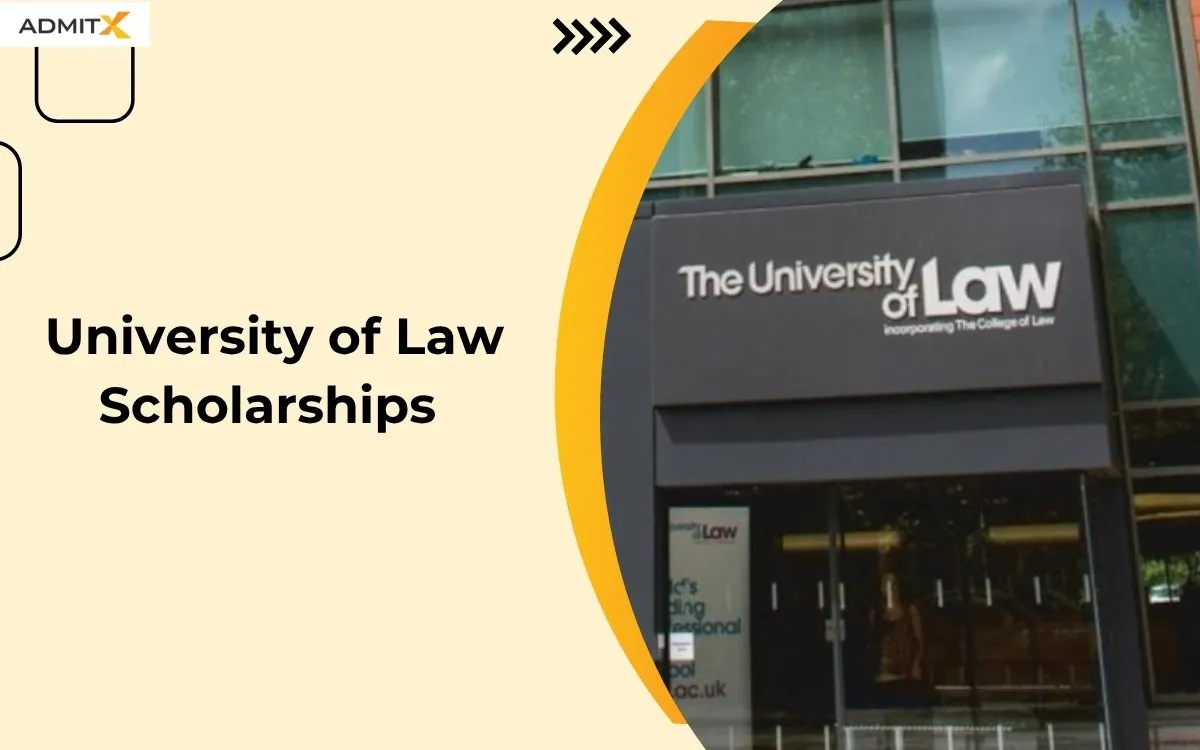
MBA in Germany for Indian Students 2024
Germany, renowned for its strong economy, world-class education, and rich cultural heritage, has emerged as a popular destination for aspiring MBA students. With its top-tier business schools and affordable tuition fees, Germany offers a unique and rewarding experience for those seeking to advance their careers.
- Why Pursue MBA In Germany?
- MBA in Germany for Indian Students: Study Intakes
- Best Universities in Germany for MBA
- Curriculum of MBA in Germany for Indian Students
- MBA Jobs in Germany
- MBA in Germany for Indian Students: Eligibility Criteria
- MBA in Germany Document Requirements
- Application Process for MBA in Germany
- Post-Study Work Visa
- Conclusion
- FAQs
Why Pursue MBA In Germany?
The MBA in Germany focuses on inculcating managerial and leadership skills into international students. Let’s dive deeper to understand why it would be best for you to pursue an MBA in Germany.
- Case-Based Learning: German business schools often employ a case-based learning approach, which allows students to apply theoretical knowledge to real-world business scenarios.
- International Business Exposure: Germany’s location in Europe and its strong economic ties with other countries provide ample opportunities for international business experience.
- Post-Study Work Opportunities: Germany offers favourable post-study work visas for international students, making it easier to find employment after graduation.
- Strong Focus on Ethics and Corporate Social Responsibility: German business culture places a strong emphasis on ethics and corporate social responsibility. An MBA in Germany can equip you with a strong ethical framework for your business career.
By residing in Germany, they often get an opportunity to learn German as a third language to better communicate with local people.
MBA in Germany for Indian Students: Study Intakes
Here are the intakes in universities for MBA colleges in Germany:
| Intake | Commencement of Application | Application Deadline | Commencement of Session |
|---|---|---|---|
| Summer Intake | December 2024 | January 2025 | April-September 2025 |
| Winter Intake | June 2025 | July 2025 | October-March 2025 |
Best Universities in Germany for MBA
German universities are renowned for their rigorous academic standards, practical approach to learning, and strong industry connections, equipping graduates with the skills and knowledge necessary to cope with the business environment. Here is a list of the best universities in Germany for an MBA:
| University | QS Global MBA Rankings 2024 | Tuition Fees (total) |
|---|---|---|
| Frankfurt School of Finance & Management | 45 | €42,000 |
| Mannheim Business School | 46 | €42,500 |
| ESMT Berlin | 85 | €49,500 |
| HHL Leipzig Graduate School of Management | 121-130 | €41,600 |
| WHU - Otto Beisheim School of Management | 128 | €48,500 |
| RWTH Aachen University | 201-250 | - |
| University of Munster | 351-400 | €1281 |
Curriculum of MBA in Germany for Indian Students
The MBA courses in Germany
- Introduction Business Accountability
- Work Ethics and Culture
- Financial strategy and planning
- Sales & Marketing
- Economics Statistics
- Business Operations
- Leadership, Teamwork, Management, and Organisational Behavior
- Accounting
Popular Specialisations in MBA in Germany are:
- MBA in Finance
- MBA in Marketing
- MBA in Entrepreneurship
- MBA in HR
MBA Jobs in Germany
Below is the list of popular jobs in Germany where graduates opt for better career and salary packages after an MBA:
- Brand Manager: Develops and maintains a company’s brand image.
- Business Analyst: Analyses business processes and data to identify areas for improvement.
- Business Development Manager: Identifies and pursues new business opportunities for the company.
- Consultant: Provides expert advice and guidance on specific business issues.
- Digital Marketing Manager: Develops and executes digital marketing campaigns to reach and engage target audiences.
- Finance Manager: Oversees a company’s financial operations and ensures financial health.
- General Manager: Responsible for the overall management and performance of a company or department.
- HR Manager: Manages human resources functions, including recruitment, onboarding, and employee relations.
- Key Account Manager: Builds and maintains strong relationships with key customers to drive sales and loyalty.
- Marketing Manager: Develops and implements marketing strategies to promote products or services and increase sales.
| Job Title | Annual Salary |
|---|---|
| Brand Manager | €56,000-€85,000 (INR 51-78 Lakhs) |
| Business Analyst | €50,000-€70,000 (INR 46-64 Lakhs) |
| Business Development Manager | €50,000-€80,000 (INR 46-74 Lakhs) |
| Consultant | €53,000-€70,000 (INR 49-64 Lakhs) |
| Digital Marketing Manager | €45,000-€60,000 (INR 41-55 Lakhs) |
| Finance Manager | €57,000-€90,000 (INR 52-83 Lakhs) |
| General Manager | €50,000-€60,000 (INR 46-55 Lakhs) |
| HR Manager | €50,000-€71,000 (INR 46-65 Lakhs) |
| Key Customer Manager | €65,000-€80,000 (INR 60-74 Lakhs) |
| Marketing Manager | €45,000-€67,000 (INR 41-62 Lakhs) |
Some of the top MBA employers in Germany are Hays, Robert Half, Michael Page, Accenture, Deloitte, PwC, and Boston Consulting Group.
MBA in Germany for Indian Students: Eligibility Criteria
Direct Admission
Indian students who have completed a four-year undergraduate degree program in Business, Economics, and Industrial Engineering can apply for an MBA in Germany on the university website.
Studienkolleg
Suppose an Indian student has completed his/her undergraduate degree in a 3-year degree course like B.Com. In that case, he/she must pursue the bridge course necessary for an MBA through Studienkolleg to become eligible.
MBA in Germany Document Requirements
Following is the list of required documents that are compulsory to submit while applying for an MBA in Germany:
- Bachelor’s Degree with a minimum CGPA of 7.0/10 or GPA of 2.7-3.5/6.
- Academic transcripts like mark sheets, degrees, school/college leaving certificates, etc.
- Duly completed application form
- Aptitude test score (depending on the university).
- English-language proficiency tests.
- Minimum 6.5 for IELTS
- Minimum 60-90 for TOEFL
- German proficiency like TestDAF (if required)
- 2-3 Letters of Recommendation
- 1-2 Statement of Purpose
- APS Certificate
- 2 passport-sized photographs
- CV (if required)
- Passport
Application Process for MBA in Germany
The preparation for applying to German universities should be initiated 1 year before the commencement of the session in particular or desired intake. Below is the application process for an MBA in Germany:
- Step 1: Prepare for standardised and German language proficiency tests such as IELTS, GMAT, TestDAF, etc., 6 months before the beginning of the desired intake application cycle.
- Step 2: Qualify the tests and receive their scorecards.
- Step 3: Gather all the necessary documents.
- Step 4: Most German Universities prefer the UniAssist platform to accept applications. However, you can also visit the university website and make an online application for the desired course for the following intake.
- Step 5: Submit the online application by paying registration fees (if required)
- Step 6: Appear for the virtual interview (if required)
The whole application process from preparation of enrollment to departure might take 13-15 months to complete. Keeping this fact in mind, an international student wishing to pursue an MBA in Germany should initiate the process as earliest as possible in any given intake.
Post-Study Work Visa
International students who graduate from German universities can extend their stay in the country for up to 18 months to seek employment in their field of study. This post-study work visa allows them to work full-time while actively searching for a job that aligns with their academic qualifications. This opportunity provides valuable practical experience and increases their chances of securing a job in Germany.
Conclusion
Germany’s blend of academic excellence, economic strength, and affordable tuition makes it a highly attractive destination for MBA students. Its focus on practical learning and global exposure equips graduates with the skills and knowledge needed to succeed in today’s competitive business world.
FAQs
Can I pursue an MBA in Germany without work experience?
Yes, several universities in Germany allow students to apply for an MBA without any prior work experience. However, having some work experience of more than one year in a relevant field such as Finance, Marketing, accounting, etc is beneficial.
Which MBA specialisation is best for me to pursue in Germany?
Entrepreneurship, International Business, Supply chain management, Digital Management, HR management, etc. are some of the best MBA specialisations you can pursue in Germany.
Is it worth doing an MBA from Germany?
As the fourth most developed country globally, Germany provides a strong platform for students seeking to pursue their academic goals and build successful careers.
Is pursuing an MBA in Germany free?
Students will only need to pay semester fees of approximately €200-500 per semester. Some public universities offer education for free.
Is a German MBA valued in India?
Yes, foreign degrees are accepted by the Association of Indian Universities (AIU), which means they are respected and valued in India.
If you are an aspirant looking to study at your dream university, book an appointment with AdmitX today and start your applications early to avail yourself of all the benefits.








